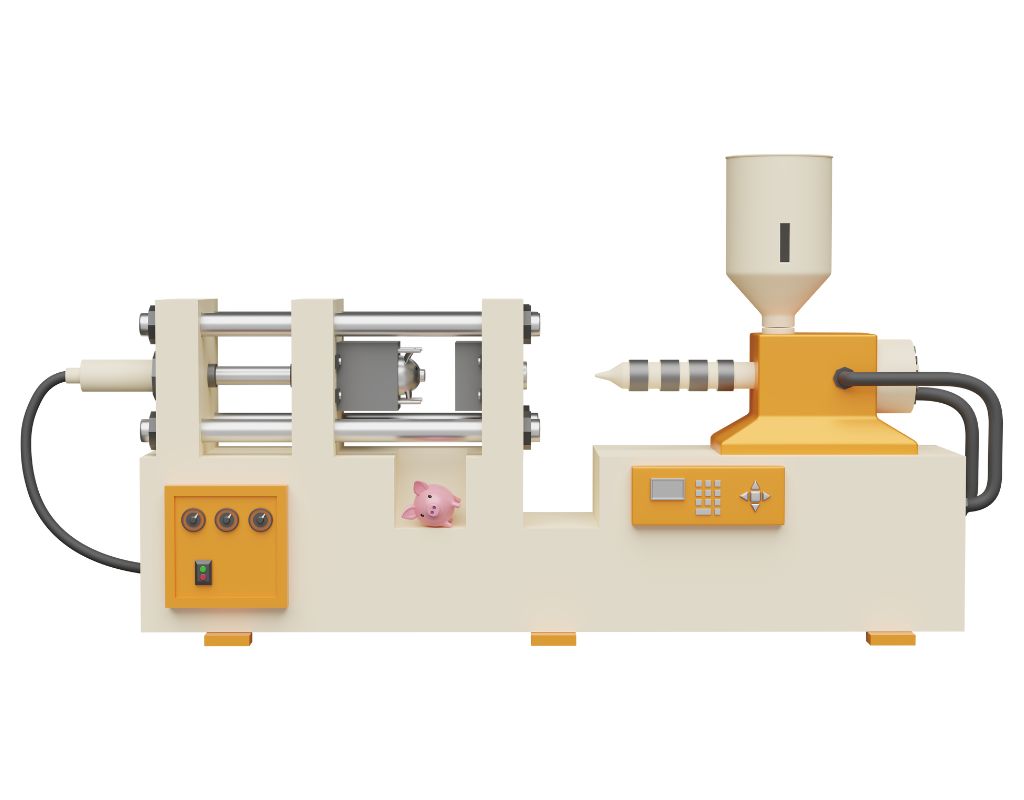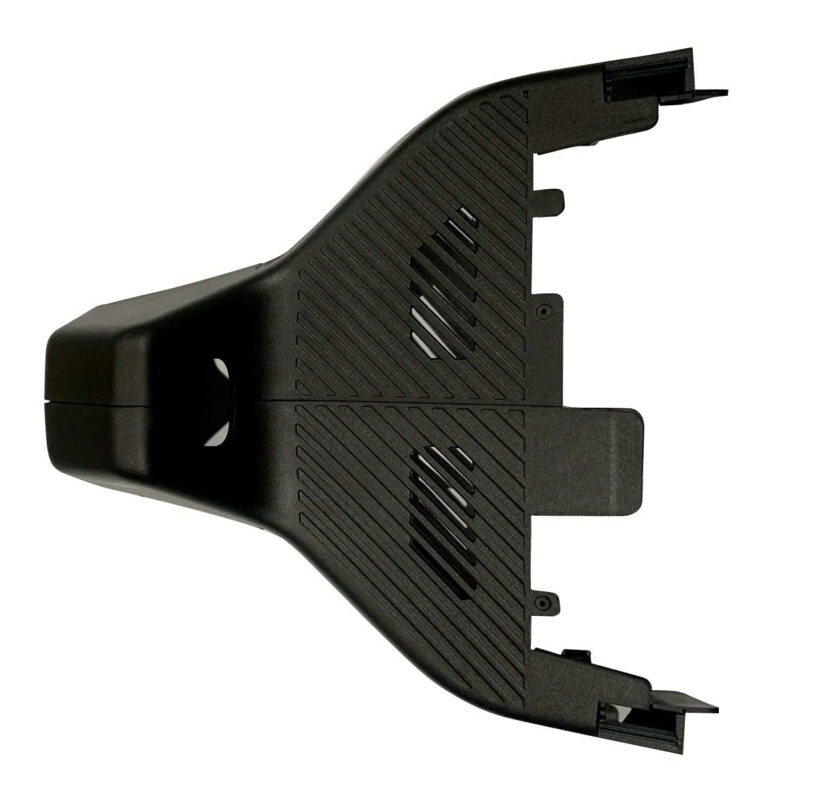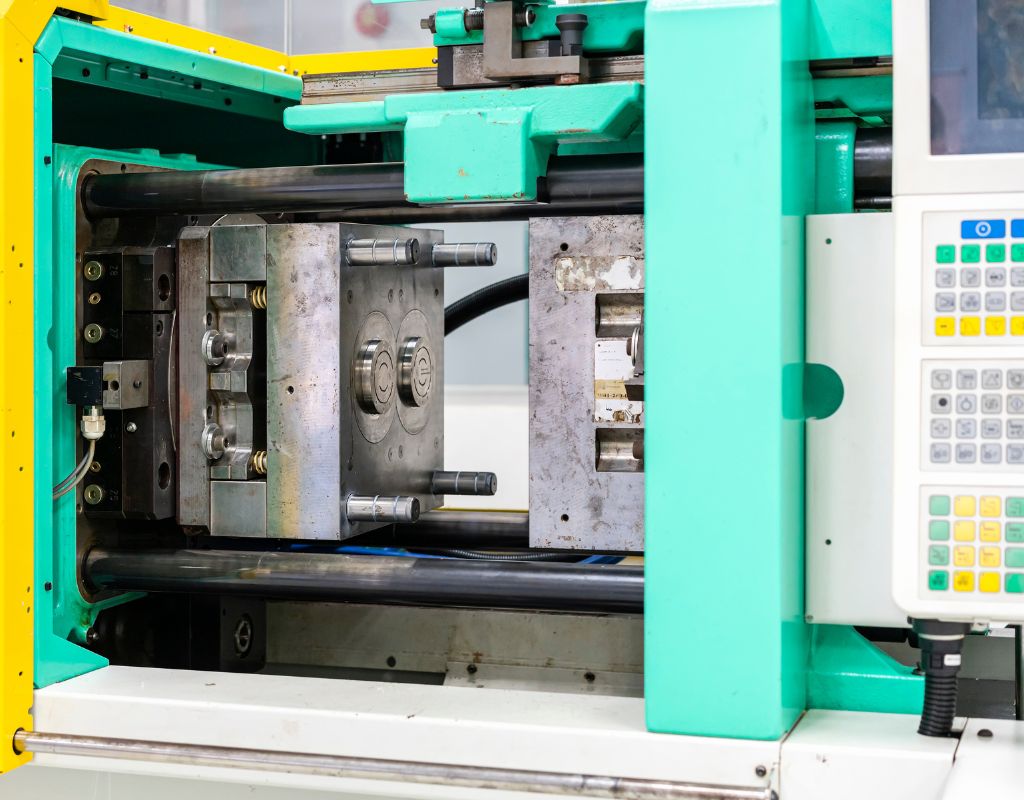Contents
- 1. What is a plastic injection molding machine?
- 2. Structure of a plastic injection molding machine
- 3. Operating principles of a plastic injection molding machine
- 4. Factors affecting product quality
- 5. Benefits of plastic injection molding machines
- 6. Applications of plastic injection molding machines
- Conclusion
Plastic injection molding machines are essential equipment in the plastic processing industry. They can mass-produce a variety of plastic products, enhancing productivity and ensuring product quality. In this article, we will explore the plastic injection molding machine in detail, including its structure, operating principles, and role in production.
If you are interested in injection molds and need to produce plastic products in bulk, don’t hesitate to contact Hanoi Mould or call our hotline at 0912 308 979 for a consultation!
1. What is a plastic injection molding machine?
A plastic injection molding machine is an industrial device used to produce plastic products by melting plastic resin and injecting it into a mold. This process allows for the creation of products with diverse shapes and sizes, ranging from small components to large items in various industries such as automotive, electronics, and consumer goods.

2. Structure of a plastic injection molding machine
A plastic injection molding machine typically consists of the following main components:
- Control panel: This is where the operator can adjust the machine’s parameters such as temperature, pressure, and injection time.
- Material feed system: This component holds the plastic resin and feeds it into the machine. It usually includes a hopper to introduce the plastic into the heating chamber.
- Heating chamber: This is where the plastic is heated until it melts. The heating chamber is often equipped with temperature sensors to ensure the plastic is melted at the correct temperature.
- Injection system: This system injects the molten plastic into the mold under high pressure. It ensures that the plastic fills all details within the mold.
- Injection mold: This is the part responsible for shaping the product. The mold can be designed in various shapes to produce a wide range of products.
- Vent system: This helps remove air from the mold during the injection process, preventing the formation of air bubbles.
- Ejector mechanism: This helps remove the finished product from the mold after the cooling process is complete.
3. Operating principles of a plastic injection molding machine
The operation of a plastic injection molding machine can be divided into the following main steps:
- Material feeding: After preparing the material, plastic resin is fed into the feed system through the hopper.
- Melting: The plastic is introduced into the heating chamber and heated to the required temperature (usually between 180°C and 250°C, depending on the type of plastic) until it becomes liquid.
- Injecting into the mold: The molten plastic is injected into the mold through the injection system, where pressure forces the plastic into every detail of the mold. This process requires high precision to ensure the plastic is injected evenly without defects such as air bubbles or shrinkage.
- Cooling and solidifying: Once the mold is filled with plastic, it is cooled to solidify and retain its shape. The cooling time depends on the size, complexity of the product, and the type of plastic used.
- Ejecting the product: When the plastic has cooled and hardened, the ejector mechanism removes the product from the mold. This process can be automated or done manually, and a new injection cycle begins. An injection cycle can last from a few seconds to several minutes, depending on the size and complexity of the product.
Learn more about the plastic injection mold manufacturing process HERE!
4. Factors affecting product quality

The quality of plastic products depends on several factors, including:
- Quality of plastic material: Poor-quality plastic can lead to substandard products that are prone to cracking or breaking.
- Machine operating conditions: Parameters such as temperature, pressure, and injection time must be accurately adjusted. Excessively high or low temperatures can reduce product quality.
- Injection pressure: Insufficient pressure can result in incomplete products, while excessive pressure may cause cracking.
- Mold design: The mold must be accurately designed to ensure the plastic fills every nook and cranny without obstruction. Defects in mold design can lead to product flaws.
- Cooling process: The time and method of cooling also affect the durability and precision of the product.
5. Benefits of plastic injection molding machines
Plastic injection molding machines offer numerous benefits for the manufacturing industry, including:
- Increased productivity: These machines can produce large quantities of products in a short time, helping businesses save time and costs.
- High precision: With accurately designed molds, the products produced have consistent sizes and shapes, meeting strict customer requirements.
- Cost savings: Minimizing material waste and production time lowers product costs.
- Diverse product range: Plastic injection molding machines can create a wide variety of products, from small to large, catering to diverse market needs.
6. Applications of plastic injection molding machines

Plastic injection molding machines are widely used in various fields, such as:
- Automotive industry: Production of plastic components for vehicles, such as body panels, trim pieces, and other parts.
- Electronics industry: Manufacturing plastic housings for electronic devices like phones, tablets, and internal components.
- Medical industry: Production of medical tools, packaging, and single-use plastic products.
- Consumer goods: Creation of plastic products such as household items, toys, and other consumer products.
If you are interested in injection molds and need to produce plastic products in bulk, don’t hesitate to contact Hanoi Mould or call our hotline at 0912 308 979 for a consultation!
Conclusion
Plastic injection molding machines are vital equipment in the plastic processing industry, playing a crucial role in producing high-quality plastic products. Understanding the structure, operating principles, and benefits of these machines will help you optimize your production processes and enhance product quality. If you are looking for effective plastic manufacturing solutions, contact us for detailed consultation and the best support!
 Tiếng Việt
Tiếng Việt English
English 日本語
日本語
